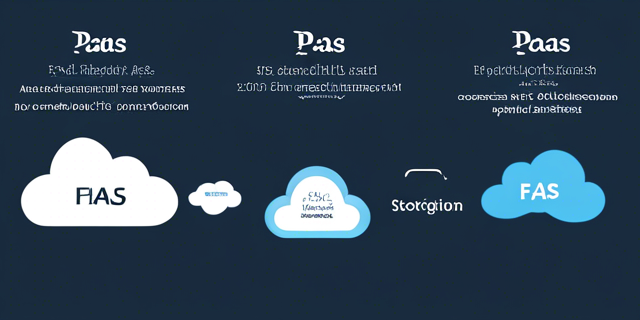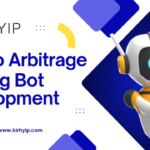Cloud computing has revolutionized the way businesses operate, offering scalable, flexible, and cost-effective solutions for managing IT resources. From its early days of Infrastructure as a Service (IaaS) to the latest advancements in Function as a Service (FaaS), the cloud computing landscape has continually evolved to meet the dynamic needs of modern enterprises. In this article, we will explore the journey of cloud computing, examining the progression from IaaS to FaaS, and discuss the implications of these developments for businesses and technology professionals.
Introduction: The Rise of Cloud Computing
Cloud computing emerged as a paradigm shift in the IT industry, providing on-demand access to computing resources over the internet. This model allows businesses to scale their operations without the need for significant upfront investments in hardware and infrastructure. The cloud’s ability to offer various service models—Infrastructure as a Service (IaaS), Platform as a Service (PaaS), Software as a Service (SaaS), and more recently, Function as a Service (FaaS)—has enabled organizations to optimize their operations, enhance productivity, and drive innovation.
Understanding the Cloud Service Models
To comprehend the evolution from IaaS to FaaS, it’s essential to understand the foundational cloud service models:
1. Infrastructure as a Service (IaaS)
IaaS is the most basic cloud service model, providing virtualized computing resources over the internet. It includes virtual machines, storage, and networks, allowing businesses to rent infrastructure on a pay-as-you-go basis. Key players in the IaaS market include Amazon Web Services (AWS) EC2, Microsoft Azure, and Google Cloud Platform (GCP).
Advantages of IaaS:
- Scalability: Easily scale resources up or down based on demand.
- Cost-Efficiency: Reduce capital expenditure on physical hardware.
- Flexibility: Customize infrastructure to meet specific business needs.
Use Cases:
- Hosting websites and web applications.
- Backup and disaster recovery solutions.
- Development and testing environments.
2. Platform as a Service (PaaS)
PaaS builds upon IaaS by providing a platform that includes not only infrastructure but also development tools, databases, and middleware. This allows developers to focus on building applications without worrying about underlying hardware or software layers.
Advantages of PaaS:
- Simplified Development: Streamlines the application development process.
- Integrated Tools: Provides built-in development tools and services.
- Collaboration: Enhances collaboration among development teams.
Use Cases:
- Application development and deployment.
- API management and integration.
- Data analytics and business intelligence.
3. Software as a Service (SaaS)
SaaS delivers fully functional applications over the internet, eliminating the need for users to install or maintain software locally. Examples include email services like Gmail, customer relationship management (CRM) tools like Salesforce, and productivity suites like Microsoft Office 365.
Advantages of SaaS:
- Accessibility: Access applications from any device with an internet connection.
- Automatic Updates: Ensure software is always up-to-date with the latest features and security patches.
- Cost Savings: Reduce costs associated with software installation and maintenance.
Use Cases:
- Customer relationship management.
- Enterprise resource planning.
- Collaboration and communication tools.
The Advent of Function as a Service (FaaS)
As cloud computing continued to evolve, the demand for more granular and event-driven computing solutions gave rise to Function as a Service (FaaS). FaaS represents the latest innovation in cloud service models, offering a serverless computing paradigm that allows developers to execute code in response to events without managing the underlying infrastructure.
What is Function as a Service (FaaS)?
FaaS enables developers to deploy individual functions or pieces of code that are triggered by specific events, such as HTTP requests, file uploads, or database changes. These functions are stateless and ephemeral, running only when invoked and scaling automatically based on demand. Popular FaaS platforms include AWS Lambda, Azure Functions, Google Cloud Functions, and IBM Cloud Functions.
Advantages of FaaS:
- Serverless Architecture: Eliminates the need to manage servers, reducing operational complexity.
- Cost Efficiency: Pay only for the compute time consumed by the functions, leading to lower costs for sporadic workloads.
- Scalability: Automatically scales to handle varying levels of demand without manual intervention.
- Rapid Development: Facilitates faster development and deployment cycles by allowing developers to focus solely on code.
Use Cases:
- Real-time data processing.
- Automated workflows and integrations.
- Event-driven applications and microservices.
- Backend services for mobile and web applications.
From IaaS to FaaS: The Evolutionary Path
The transition from IaaS to FaaS reflects a broader trend towards abstraction and specialization in cloud computing. Each service model builds upon the previous one, offering higher levels of abstraction and more specialized functionality:
- IaaS: Focuses on providing fundamental computing resources.
- PaaS: Adds development and deployment tools on top of IaaS.
- SaaS: Delivers complete applications built on top of PaaS.
- FaaS: Offers a serverless, event-driven execution model that abstracts away infrastructure entirely.
This progression allows businesses to adopt increasingly efficient and scalable solutions, aligning their IT strategies with their operational needs.
Benefits of Adopting FaaS
The shift towards FaaS brings several benefits to organizations:
- Enhanced Agility: Rapidly develop, deploy, and iterate on functions without worrying about infrastructure.
- Reduced Operational Overhead: Offload server management and maintenance to the cloud provider.
- Optimized Resource Utilization: Execute functions only when needed, ensuring efficient use of resources.
- Improved Time-to-Market: Accelerate the development process, enabling quicker delivery of features and services.
Challenges and Considerations with FaaS
While FaaS offers significant advantages, it also introduces new challenges. One important consideration for businesses implementing FaaS is the need to secure their cloud environment. As functions are deployed across various cloud platforms, ensuring data security and privacy becomes paramount. This is where using a VPN can be crucial.
For businesses or developers looking to enhance their cloud security, it’s advisable to download VPN. A VPN encrypts your internet connection, safeguarding your data from potential breaches and unauthorized access, especially when managing cloud services and deploying FaaS functions.
Real-World Applications and Use Cases
FaaS is being utilized across various industries to drive innovation and efficiency:
- E-commerce: Implementing personalized recommendations and dynamic pricing based on user behavior.
- Healthcare: Processing and analyzing patient data in real-time for immediate insights.
- Finance: Automating transaction processing and fraud detection.
- Media: Streaming and processing media content dynamically based on user preferences.
This post was created with our nice and easy submission form. Create your post!





